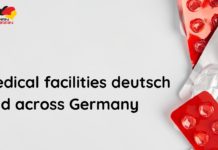
In March 2020, if you are an in immigrant in Germany with skilled labor then here is good news for you. In other words, the prestigious immigration laws reserved for EU immigrants will now be open to everyone including non-EU countries. It is a new dawn because these laws see to it that both vocational and skilled professionals have a relaxed life in Germany.
However, you must note that the new laws and adjustments are in place to welcome non-EU professionals to come and work in Germany. The key changes include the following:
- Who is a qualified professional?
A qualified professional include the following;
- Tertiary education degree recognized in Germany.
- Vocational training qualification recognized in Germany.
- Any other relevant qualification pertaining to the above two recognized by the relevant authority in Germany.
- German labor market
Initially, the Federal Employment Agency in German did background checks on immigrants who had job offers and qualifications recognized in Germany. However, the employment conditions must still meet the agency’s standards.
- Skilled labor employment
Skilled professionals with a German degree or any degree from an institution recognized in Germany can come to Germany to hunt for a job. They’ll be issued with a six-month residence permit on a condition that they can support themselves financially during that period. However, if you are not luck to land a job then you are allowed to work in a sector that doesn’t require a university degree.
- Vocational qualifications
Earlier on, Germany could only allow offering vocational training to non-UE countries on niche areas alone. However, that one has changed and now and all courses are open to anyone’s application. If you get a vocational qualification from a German institute or any global institute recognized by Germany then you can work in any sector that requires your qualifications. However, you must have a residence permit that allows you to be gainfully employed.
- Vocational labor employment
Well, good news for professionals with vocational training as you are now welcome to Germany to look for job. After successful application, you’ll be issued with a six-month residence permit within which you should be able to find a job. However, you must have proof that you can support yourself financially within that stay period, or before you land a job. In addition to that, you’ll also need to possess B1 level German language skills; and most specifically in your area of experience. As you are hunting for a job, you can be guaranteed a 10-hour weekly employment for trial basis. If you deem fit, then you could land the job.
For students and scholars, as before, higher education training programmes are open to anyone across the globe. Moreover, with new rule, it is possible to undertake a vocational training programme of your choice in Germany. However, you need to meet specific preconditions which include the following:
- B2 level German language skills.
- German school leaving certificate.
- School leaving certificate that approves you for higher education.
- At most 25 years of age.
- Financial independence.
- Permanent residency
Finally, all citizens from any country of the world are allowed to have a permit of permanent residency in Germany after four years of working as a qualified professional. It is an improvement from earlier on where permanent residency was reserved for EU-member states and was applicable after five years of working as a qualified professional.




































